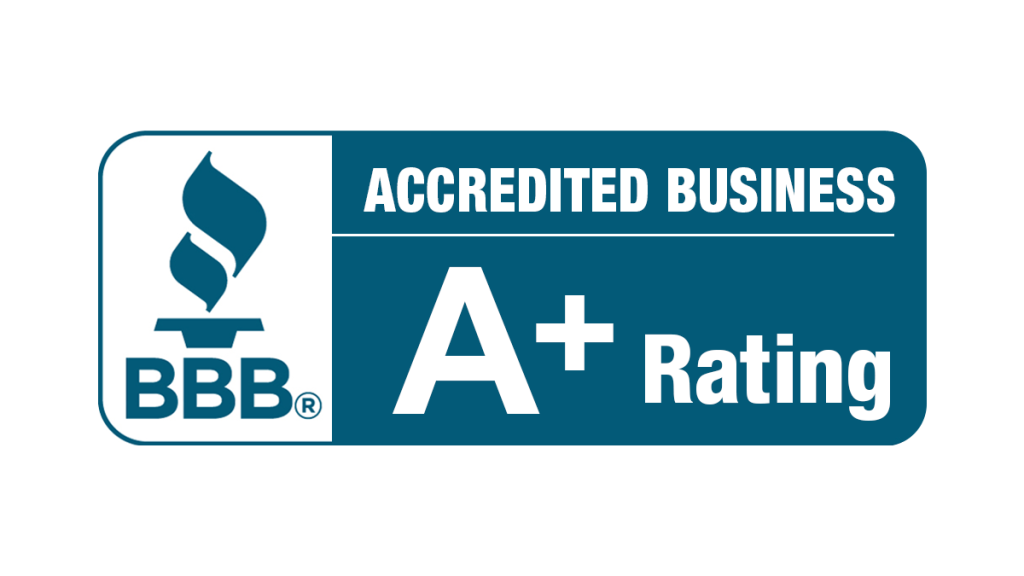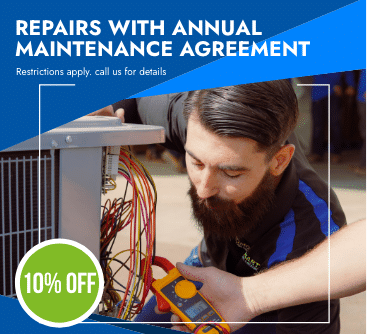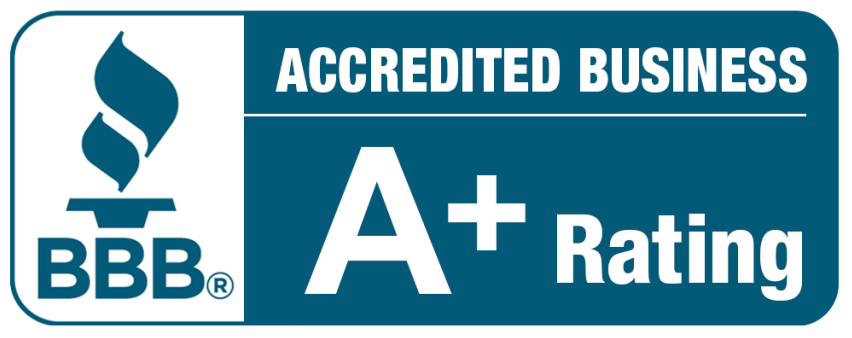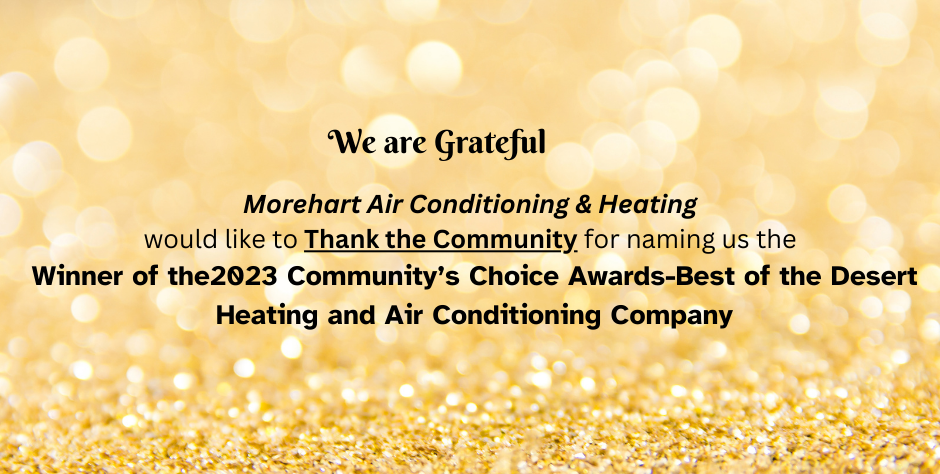Watch Out for these Air and Heating Scams
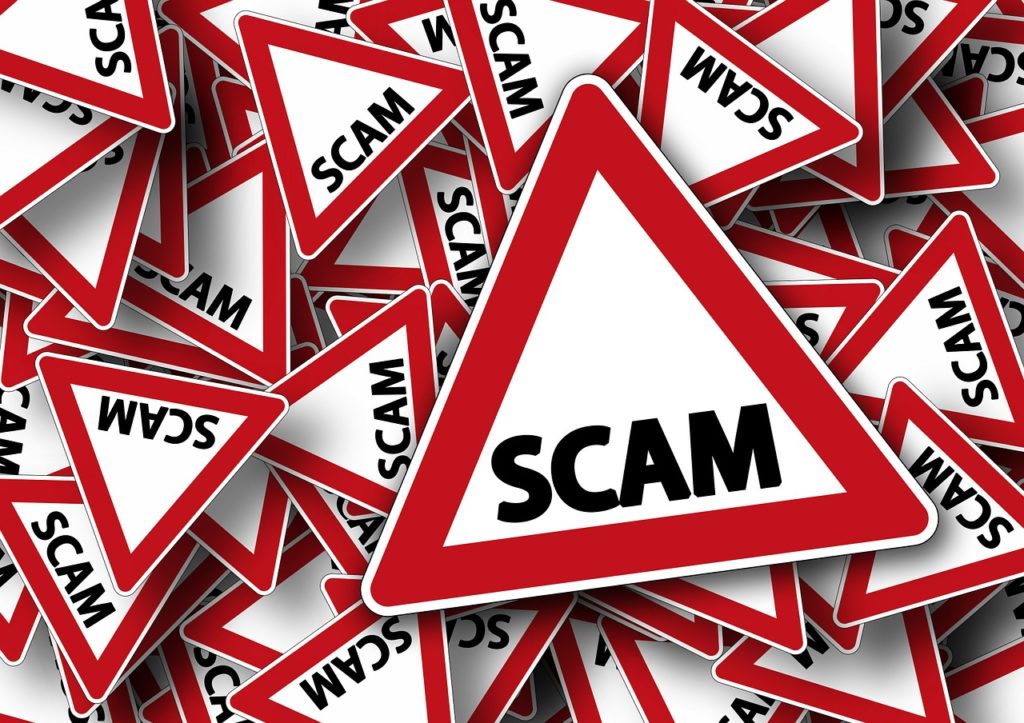
It’s not uncommon for reputable heating and air conditioning manufacturers to offer fall and winter deals on system replacements. In the southwest, it’s a way to give a small boost to a contractor’s slow season while also rewarding forward-thinking consumers who don’t want to contend with a mid-summer breakdown.
“This is the slow time of year for our trade and manufacturers know that; so they’ll offer better incentives,” said Josh Morehart, president of Morehart Heating & Air Conditioning, in Phoenix. “Sometimes, they might sell off some overstock, but they’re still brand-new systems with full warranties.”
Unfortunately, this is also the time of year where less-reputable contractors offer deals that are too good to be true. With some due diligence, Morehart says consumers can protect themselves from a bad situation.
Questionable warranties
At the heart of a sketchy deal you’ll often find an exuberant warranty claim. A reputable manufacturer carries a 10-year warranty. Longer ones may not be actual factory warranties, but contractor warranties, instead, explained Morehart.
“If that contractor goes out of business, you’ve paid for a service you’ll never receive. … You have to make sure it’s a manufacturer-backed warranty,” the HVAC pro emphasized.
Know about SEER ratings
The SEER (Seasonal Energy Efficiency Rating) rating of a system is one of today’s most critical talking points when buying a new heating and air conditioning system. The higher the SEER rating, the more efficient the system is – or the less energy it requires to do its job.
As of Jan. 1, 2015, a 14-SEER rating is the minimum for the southwest region (which includes Arizona), according to the U.S. Department of Energy. However, an 18-month sell-through period has been established where 13-SEER units can still be sold as long as the equipment was built prior to Jan. 1, 2015.
Unfortunately, some unscrupulous contractors will purchase 13-SEER units from a northern region vendor. These systems may not be compliant with local standards. “It’s a big no-no, but it’s happening,” Morehart added.
Unknown brands
At the heart of a bad deal masked by an incredible price is a brand you haven’t heard of. Unfortunately, there are some lesser-heard names that may not even offer warranty service in the U.S.
“There are brands that used to sell in the U.S. but they’ve pulled out of the country and don’t have support here,” Morehart said. “You may be in a situation where they’ll honor a warranty, but you have to pull the part out and ship it to China. It could take two to four months to get it back.”
Used versus new
Some scams will try to pass off used equipment as new. Buying used equipment is not uncommon for those who own rental properties. At times, Morehart’s team even has refurbished units on hand, but it must be made clear to the buyer that the unit is used.
“There are some who will try to sell it as a new unit,” he added. “If the price is far lower than expected, you need to make sure you’re not getting scratch and dent equipment or equipment that can’t be registered. … We’ve even seen situations where the equipment was stolen.”
Questions to ask
Morehart suggests taking the following due diligence steps:
Make sure the contractor is an actual manufacturer’s distributor. You can visit the manufacturer’s website or call them directly.
Check the state’s Registrar of Contractors (ROC) to see if there has been any disciplinary action filed against the seller.
Ask for testimonials and check the Better Business Bureau (BBB) website for complaints.
Ask the contractor if the unit is SEER compliant and don’t be afraid to follow up with the manufacturer with serial number in hand if you suspect the unit is either used or does not meet regional standards.
Morehart Heating & Air Conditioning enjoys an A+ rating from the Better Business Bureau. To learn more about energy efficiency solutions for your home, visit Morehart Air Conditioning and Heating or call 602-640-0444.
Frequently Asked Questions
Air heating scams often involve questionable warranties, selling used equipment as new, offering non-compliant SEER-rated systems, and using unfamiliar brands that don’t provide U.S. warranty support. Homeowners should be cautious of deals that seem too good to be true.
To avoid air heating scams, verify the contractor’s credentials with the state’s Registrar of Contractors (ROC), check their status with the Better Business Bureau (BBB), and ensure the equipment has a manufacturer-backed warranty. Also, confirm the system meets local SEER rating requirements.
Yes, extended warranties are a common feature in air heating scams. Some contractors may offer contractor-backed warranties instead of manufacturer-backed ones. If the contractor goes out of business, the warranty becomes void, leaving you without protection.
In air heating scams, some contractors may sell units with SEER ratings below the regional standard, especially by sourcing non-compliant units from other regions. Ensure your system meets the minimum SEER rating for your area (14-SEER for the southwest) to avoid fines or inefficiency.
Yes, one of the red flags in air heating scams is the use of unknown brands. Some brands may not offer support or warranty services in the U.S., causing long delays in obtaining replacement parts or services. Always check the brand’s reputation and warranty policies.
